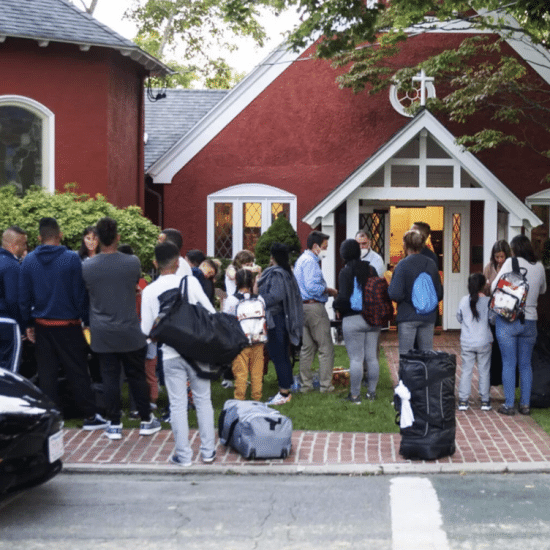Parents of squirming children who cannot stay focused and who often end up labeled as “troublemakers” some-times feel isolated — and maybe even unwelcome in church.
Author Maren Angellotti believes they are in good company. The parents of John the Baptist and the Apostle Peter might have felt the same way.
It’s obvious from God’s word that he has no problem working with people who are different.… In fact, he seems to prefer it,” Angelloti writes in her book, Of Different Minds: Seeing Your AD/HD Child Through the Eyes of God.
Angelotti — who earned a master’s degree from Dallas Baptist University in teaching for the learning-different student — understands learning disabilities such as attention deficit disorder, hyperactivity, dyslexia and perceptual dysfunctions.
As a reading therapist who specializes in remediation programs for dyslexic students, she recognizes the neurological differences between the brain activity of the general population and children with learning disabilities.
But she also understands learning differences experientially. Three of her four children have learning disabilities — two diagnosed with ADD, dyslexia and related disorders, and one with ADD and auditory processing disorder. And she realizes the children inherited those traits — she is dyslexic, and her husband, Bob, has ADD.
One big challenge parents of children with learning differences face is foundering in what Angelotti calls “the sea of denial” and failing to come to terms with the special needs their children have.
“Pride is really the bottom line. They have a tendency to say, ‘Nobody needs to help me,’” she said in an interview.
But if churches seriously want to minister to all families — including parents of the more than 2 million children in the U.S. with learning differences — they must approach parents in ways that break down those walls of prideful self-sufficiency, Angelotti insisted. And the churches themselves must move out of denial that a need exists, she added.
“The faith community has to realize there is a problem. It’s not so much that the church has dropped the ball, but it hasn’t really picked up the ball, either,” she said.
Matthew Stanford, professor of psychology and neuroscience at Baylor University, has noted AD/HD, in particular, is a controversial topic among some evangelicals.
“Within Christian circles, some have gone as far as to suggest that AD/HD is nothing more than rebellion, resulting from bad parenting, or society’s attempt to turn sin into sickness,” Stanford writes in Grace for the Afflicted: A Clinicial and Biblical Perspective on Mental Illness.
While he acknowledges AD/HD has been misdiagnosed, and probably overdiagnosed, that does not negate its reality or churches’ responsibility to respond. AD/HD is “a real disorder that affects the lives of real children and their families,” he writes.
“These children wrestle daily with debilitating physical, psychological and spiritual issues. Although mistakes may have been made in relation to diagnoses in the past, this does not change the fact that children who do struggle with this disorder can be effectively treated. And the church has a significant role to play in their healing.”
An important first step churches can take is to educate members — particularly Sunday School teachers and children’s workers — about learning differences and learning styles.
“One of the greatest services churches can provide is to give families a place where they feel safe,” Angelotti said. “Churches are at their best when they help children to become what God intended them to be.”
Churches become more welcoming places for families of children with learning disabilities when adults who work with the children understand them, several children’s ministers noted.
First Baptist Church in Port Neches, Texas, seeks to be the kind of place where parents feel their children are affirmed and loved — not rejected, said Jeanette Harvey, minister to children and preteens.
“We try to build trust with these parents who probably already have their defenses up. Some of them have been told by teachers and other authorities, ‘Your child is a problem,’” she said.
“We want to love on them and let them know we want them here.”
A key way teachers and workers can help children with learning differences is by making accommodations to their special needs in ways that don’t single them out.
“They get enough of that at school and everywhere else they go,” noted Amy Owens, children’s minister at First Baptist Church in Garland, Texas.
In the Sunday School classroom, the accommodation may be as simple as encouraging teachers to vary their teaching styles to appeal to a variety of learning styles. By incorporating different styles that reach visual, auditory, tactile and kinesthetic learners — children who learn best by seeing, hearing, touching or moving — the needs of children who process information differently are met, she noted.
“When a teacher uses more than one approach frequently, that helps every child in the class, because the more senses they use, the more they absorb and learn,” Owens said.
Bible Drill competition — a contest based on children’s ability to find selected Scripture passages quickly, as well as memorizing key verses and the books of the Bible — presented a special challenge, but First Baptist Church in Garland worked to level the playing field for children with dyslexia.
“We advocated at the associational and state levels for an easy accommodation for them,” said Owens, who has a daughter with dyslexia.
They changed the procedure of the competition slightly. When a monitor would call out verbally a Scripture passage or book in the Bible, he or she would hold up a visual cue at the same time. The accommodation not only helped the dyslexic children, but also was beneficial to competitors who were more visual learners rather than auditory.
Children with learning differences may require special attention, such as having a worker assigned specifically to that child to make sure he or she gets what is needed in order to learn, she noted.
While it generally can be done discretely, sometimes other children will notice the extra attention one child receives. When dealing with older children — particularly preteens who already may have made a commitment to follow Christ — teachers may want to gently explain the special needs of one of their classmates.
“Children are all about being fair. If we explain to the older kids that someone is getting extra attention because they need a little special help in order to be even with everybody else, in their minds, that’s fair treatment,” she said.
“Our kids are more compassionate than we give them credit for. Particularly if they already have become Christians, they have the Holy Spirit working in them. They are looking for opportunities to express that relationship they have with Christ.”
Churches also can minister to families of children with learning differences by offering programs that directly benefit the parents. Since most learning disabilities are inherited, oftentimes at least one parent has learning difficulty — including many that went undiagnosed as children, Angelotti noted.
“Adults typically don’t seek help for themselves, but churches can provide assistance by offering literacy and reading training,” she noted.
Churches also can provide marriage enrichment ministries or even subsidized counseling that help couples directly address issues that put strains on their marriage. Among families affected by learning disabilities, most often one spouse has AD/HD, dyslexia or some other dysfunction, and the other learns to compensate, Angelotti observed.
“That can lead to a martyr syndrome, where one spouse feels he or she has to take care of everything,” she said. “Finances particularly can be a point of tension that destroys a marriage. There is a high divorce rate among this group.
“When marriages are healthy, children are healthy — mentally, spiritually and physically.”
Ken Camp is managing editor of the Texas Baptist Standard.






